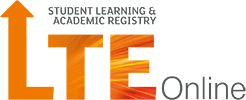Gilly Salmon’s five stage model provides a framework for a structured programme of online learning. The model offers essential support and learning to participants at each stage, which will be looked at in more detail. Her five-stage plan offers a precise approach to scaffolded learning, a crucial aspect of constructive learning.
The model can be applied to many different areas of online delivery. For example, it has been very effective getting students to engage with asynchronous tools like discussion boards.
Stage 1 – Access and Motivation
Stage one involves the online learning system being set up and activated, and a warm welcome to students who are new to online learning. It is important to encourage students to access and engage with the content as well as with their peers. Students should be made aware that there is technical support available for them if they need it.
Stage 2 – Online Socialisation
At stage two, students should be expanding their network and communicating with other members of their online community. These conversations should be moderated by the tutor, in order to ensure that the students are communicating appropriately. One way to encourage the students to connect could be to set up an activity in a discussion board such as asking the students a question and getting them to discuss the answer together.
Stage 3 – Information Exchange
At stage three the tutor will be teaching and supporting the use of learning materials whilst the student will be beginning to gain an understanding of how online learning works and how they can manage their time effectively. This may include conducting their own personal research and finding different softwares that may be useful in their learning.
Stage 4 – Knowledge Construction
By stage four the student should have taken control over their learning. They will be a valued member of their learning community. At this point, it is vital that the tutor moderates each learner and reaches out to anyone who they think may be struggling. Online learning can be an isolating experience and students can fall behind if they are not receiving the relevant support.
Stage 5 – Development
At this stage the student should be a confident online learner that can work independently and provide meaningful discussion within the group. They should be able to apply their learning to their own individual contexts. Tutors should be providing extra reading at this point, in order to encourage students to continue to develop their own individual expertise.
The following video shows Gilly Salmon discussing the model in more detail: Education Alchemists: Professor Gilly Salmon interview about the 5 Stage Model
If you need any further support, please contact eLearning@tees.ac.uk
